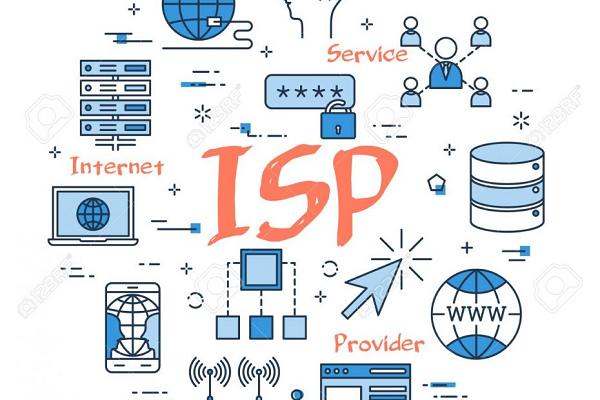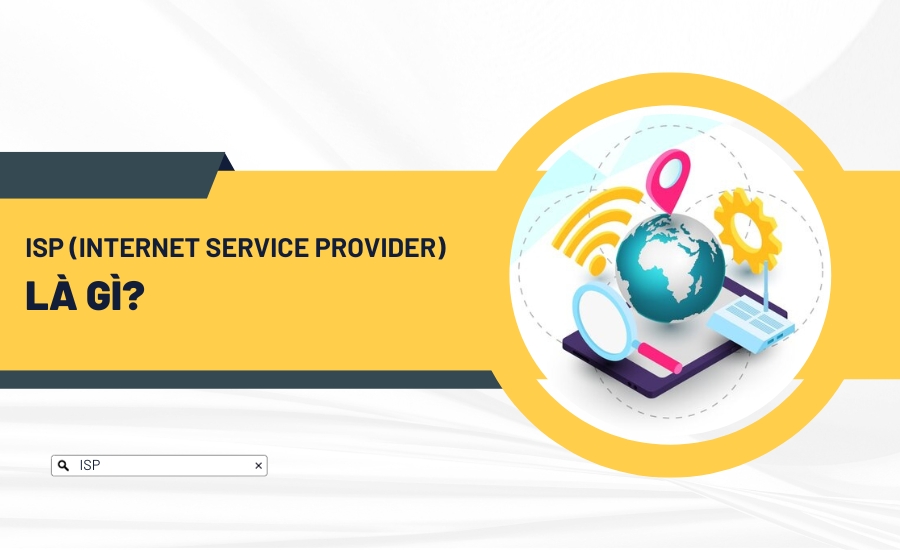What is an ISP? Why Do We Need Internet Service Provider?

What is ISP? The Internet has become an important part of our daily lives. We use it to work, play, learn and connect with the world. But have you ever wondered how we can access the Internet and use it easily?
That's thanks to ISP – Internet Service Provider. In the following article, we will learn together about ISPs and how to choose a qualified ISP.
What is ISP?

ISP (Internet Service Provider) or Internet service provider is a company or organization that provides individuals and businesses with access to the Internet and other related services. The ISP has the equipment and telecommunications lines necessary to have an Internet presence for the geographic area served.
ISPs make it possible for customers to access the Internet, and they also provide additional services such as domain registration, email, and web hosting. ISPs can also provide different types of Internet connections such as cable and fiber. Connections can also be high-speed broadband or non-broadband.
How do ISPs work?
Knowing what an ISP is, we see that an ISP is connected to one or more high-speed Internet lines. Larger ISPs have high-speed leased lines so they are less dependent on telecommunications services and can provide better service to customers.
ISPs also hold thousands of servers in data centers – the number of servers depends on their Internet service area. These large data centers manage all customer traffic. Many ISPs are also connected to major backbone routing centers.
ISPs are grouped into three levels:
Tier 1 ISP: Knowing what an ISP is you will see that these ISPs have a global reach and possess enough physical lines to handle a lot of network traffic independently. They also negotiate with other tier 1 networks to allow traffic through without paying fees to other tier 1 providers. Usually tier 1 ISPs sell network access to tier 2 ISPs.
Tier 2 ISPs: These ISPs have regional or national reach and are tier 1 and tier 3 ISP connectivity providers. They must purchase access to larger tier 1 networks but are on par with other level 2 ISPs. Tier 2 ISPs focus on consumer and commercial customers.
Tier 3 ISPs: These ISPs connect customers to the Internet using another ISP's network. Tier 3 ISPs use and pay higher tier ISPs to access Internet services. They focus on providing Internet access to local businesses and the consumer market.
What are the services provided by ISP?

Cable: This service uses coaxial cable (the same type of cable as television cable). Cable Internet has low latency, suitable for users who need little latency or waiting time. Cable download speeds range from 10 to 500 Mbps and upload speeds range from 5 to 50 Mbps.
Fiber optics: Fiber internet uses fiber optic cables to transmit data to provide much faster speeds than cable or digital subscriber line (DSL). Fiber optic cables have download speeds from 250 to 1,000 Mbps and upload speeds from 250 to 1,000 Mbps. Fiber optic cable is suitable for online gaming users and other strong Internet users.
DSL: DSL connects users to the Internet using phone lines. It is widely available, but is slowly being replaced by more reliable bandwidth connections such as cable and fiber optics. DSL is slower and offers download speeds of 5 to 35 Mbps and upload speeds of 1 to 10 Mbps. This is a good choice for users in rural areas and those who primarily surf the web or watch online TV on a single device.
Satellite: Satellite internet works through the use of communications satellites. Ground stations transmit Internet data in the form of radio waves to and from satellites in low Earth orbit and to more distant ground stations. Satellite Internet is slower, with download speeds of 12 to 100 Mbps and upload speeds of 3 Mbps, but it's a good choice for users in remote areas.
What can ISPs do?
Provides Internet connection
Find out what ISP is remember ISP provides connection services to the Internet for individuals, families, businesses and organizations. This includes providing Internet access via fiber optic cable, DSL, coaxial cable, radio waves and many other network technologies.
Network management
ISPs maintain and manage network systems to ensure stable and reliable Internet access for customers. They must build and maintain complex network infrastructure to relay data between sources and destinations.
Provides email services
ISPs often provide email services to their customers. This includes setting up and managing email inboxes, as well as email security and spam protection.
Providing hosting services
Some ISPs provide hosting and domain name (domain) services to customers, allowing them to create and manage personal or business websites.
Network Security
Understanding what an ISP is, we realize that an ISP must ensure network security to protect customers from online threats.
Technical assistance
ISPs provide technical support services to customers, helping them solve Internet connection problems and use services effectively.
Collect and store data
ISPs may collect and store information about customers' network activity, such as data traffic and login information. This can be used for management and billing purposes.
Instructions for choosing the right ISP
Knowing what an ISP is, users should choose an ISP based on the following factors:
Coverage: Which providers service your area? If you live in a rural area, there may be fewer options.
Types of services offered: In addition to cable, fiber, DSL and satellite, does the ISP offer online security? Is there free email access? Does it provide hosting services for websites? Is mesh Wi-Fi supported? Choose ISPs that offer services that suit your needs.
Download and upload speeds: Do you game online, work from home, or teleconference? These activities all require different levels of service. Therefore, please clearly define to choose accordingly.
Pricing: Does the ISP bundle services like Internet, phone, TV, and if so, is it cost-effective to combine those services? Are there any data limits? What about equipment costs? Is there a contract?
Check other consumer satisfaction: Check unbiased reviews for accurate ISP ratings.
Epilogue
Above is all the information about what ISP is and the services provided by ISP. Remember that ISPs play an important role in bringing the Internet to billions of users around the world. Whether you're playing online games, working remotely, or simply browsing the web and watching movies online, your ISP will always ensure your Internet connection is stable and secure.


